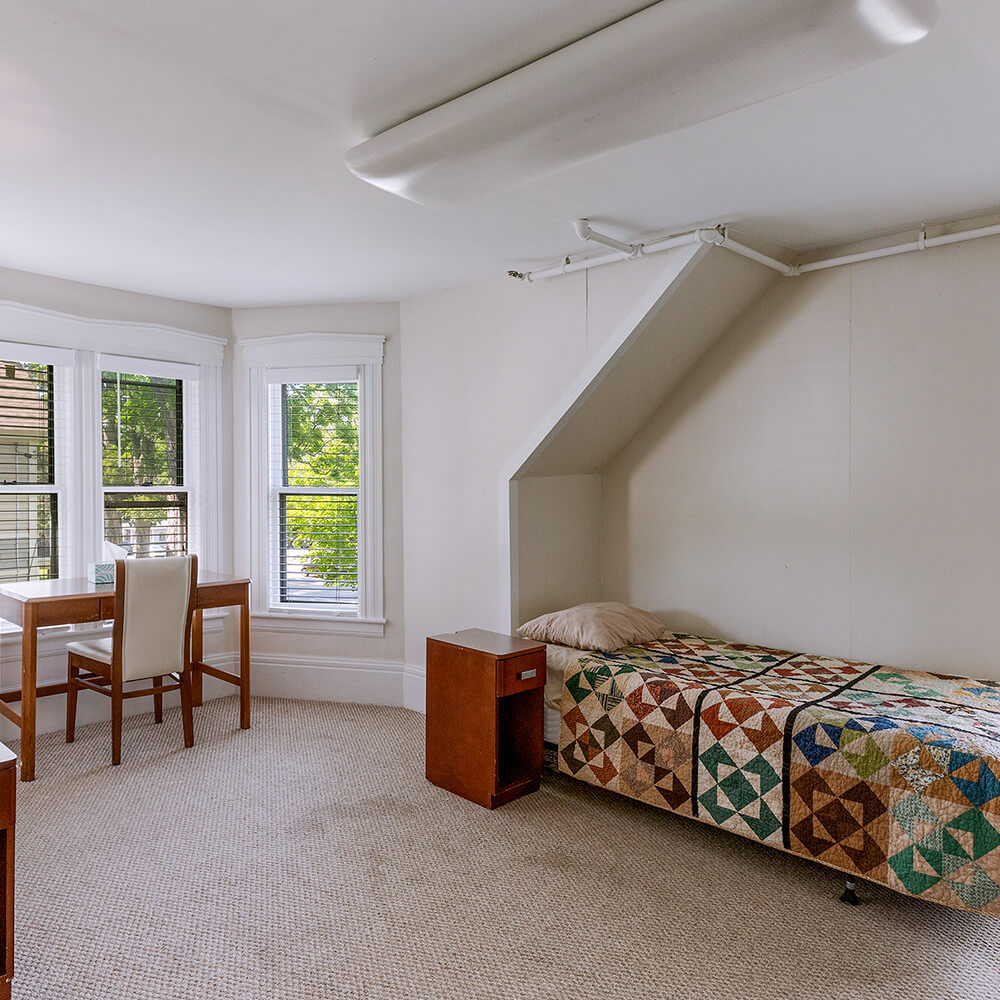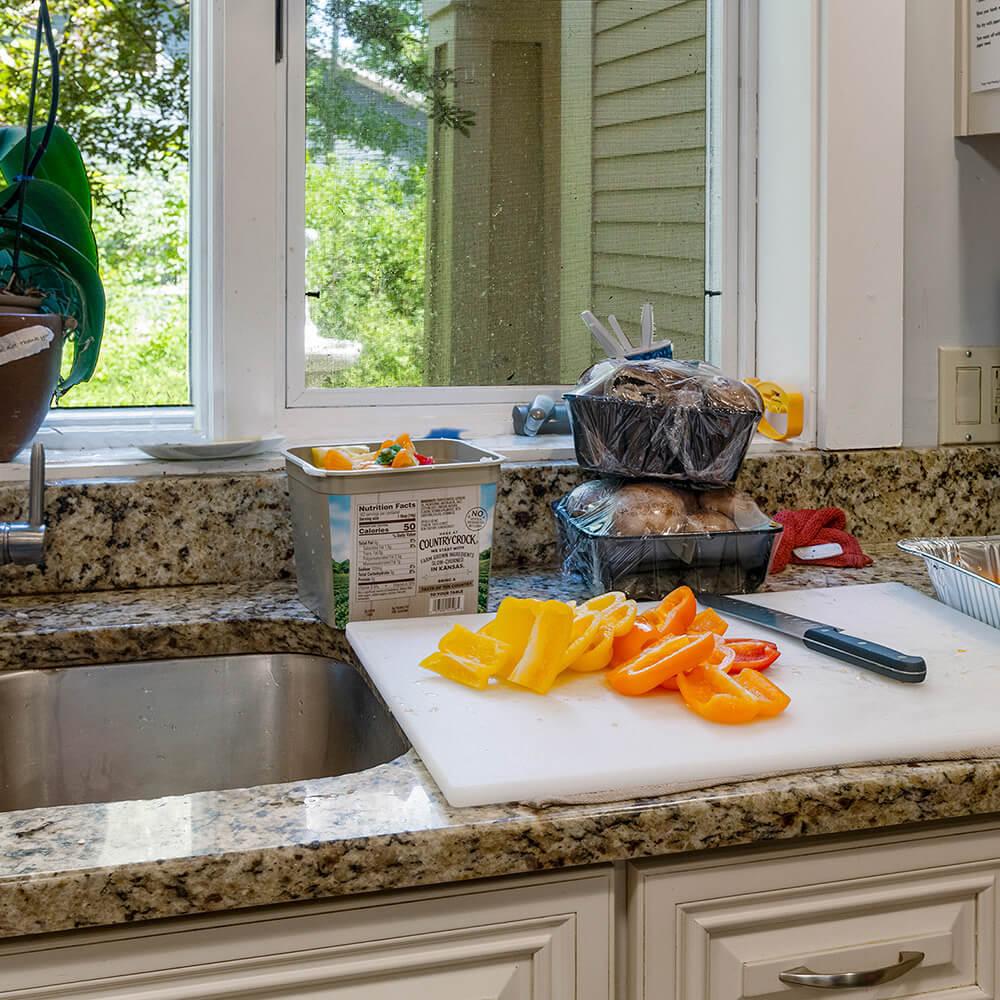What is a Residential Addiction Treatment Program in New Hampshire?
Upon arrival at our residential addiction treatment center, residents will be introduced to our team of clinical experts. Each client’s care team member has been professionally trained in the most innovative and successful addiction treatment methods.
Introductions will be made to a primary therapist and residential counselor. Each staff member tells our clients how he or she will contribute to their holistic/mental health treatment plan.
Most importantly, our team of residential addiction treatment professionals is prepared and passionate about helping each person on their journey toward a healthy and lasting recovery.
Residential addiction treatment programs in New Hampshire are comprehensive, inpatient programs designed to help individuals overcome addiction and achieve long-term recovery. These programs provide 24/7 support and care, allowing individuals to fully immerse themselves in their recovery journey without the distractions and temptations of everyday life.
In a residential addiction treatment program, individuals participate in a variety of evidence-based therapies, such as individual and group counseling, behavioral therapy, and holistic approaches like yoga and meditation. They also have access to medical support, including medication-assisted treatment, if needed.
One of the key benefits of residential addiction treatment is the structure it provides. With a structured schedule and daily activities, individuals have the opportunity to focus solely on their recovery, free from the triggers and stressors of daily life. This can greatly increase the chances of successful long-term recovery.
The length of a residential addiction treatment program in New Hampshire can vary, with some lasting 30 days, while others can last several months. The goal is to provide each individual with the level of care and support they need to successfully overcome addiction and achieve long-term recovery.
Sobriety Centers of New Hampshire, located in Laconia, NH and Antrim, NH, offers a comprehensive residential addiction treatment program for those struggling with drug and alcohol addiction. Our experienced staff, personalized care, and evidence-based therapies make us the best choice for residential addiction treatment in the heart of the Granite State.
How Healing Happens
The first 24 hours are vital in establishing a healthy pattern and outlook of new recovery for clients suffering from substance abuse.
We offer this in abundance by providing services and support in the following forms:
- Admission screening to evaluate readiness and reasons for treatment
- Review of Rights and Responsibilities to keep residents informed and safe
- A tour of our facility to familiarize individuals with their environment and help them feel welcome
- Introduction to friendly and emphatic team members
- Nutritional meals to promote physical healing
- Comfortable beds to restore healthy sleep patterns
- Education on addiction and how to keep the disease in remission
- Activities that assist in navigating thoughts and feelings
What to Bring to Treatment
Below is a list of items that we recommend you bring to treatment at Antrim House.
*WE SUGGEST ONLY BRINGING ONE SUITCASE TO TREATMENT*
- Prescription medications in the original pharmacy bottle1
- Insurance cards
- A form of ID
- 5-7 shirts2
- 5-7 pairs of pants or shorts
- 7 pairs of underwear and socks
- 2 pajamas
- 1 pair of sneakers
- 1 pair of comfortable shoes
- 1 pair of winter boots
- 1 jacket
- 2 sweatshirts
- 1 pair of winter gloves
- 1 winter hat
- Toiletries3
- Enough cigarettes for 30 days
- Stationery and stamps
- Addresses and phone numbers
- 2-3 books (optional)
- Eyeglasses (if needed)
1 Prescription medication must be in original bottle with the information label still intact. Any liquid medication must be new and sealed. It is also suggested that you bring a list of all your current medications and dosages.
2 If bringing tank tops make sure you also pack long sleeve attire to appropriately cover up.
3 Enough shampoo, conditioner, toothpaste, deodorant, shaving cream and soap for 30 days. Hair dryer, shaving supplies, nail clippers. These items can not have alcohol in the first three active/inactive ingredients; there is no such thing as inactive alcohol.
What you MAY NOT bring
(THIS LIST IS SUBJECT TO CHANGE BASED ON STAFF DISCRETION AT ANY TIME)
- Alcohol/drugs
- Unlabeled/sample/mixed medications
- Herbal products/supplemental vitamins
- Pornography
- Weapons of any kind
- Electronic equipment1
- Excessive makeup, clothing or jewelry
- Rolling/chewing tobacco
- Cigars, cigarillos, or pipes
- Clothing with inappropriate or alcohol/drug related wording or logos or sexual content
- Baseball caps or flat brimmed hats
- Short shorts/skirts
- Halter tops, tank tops, or shirts that show your midriff
- Pillows, blankets, comforters2
- Toiletries with alcohol in the first three active or inactive ingredients
- Games, card decks, or sporting equipment
- Perfumes, colognes, body sprays, or aerosols
- Expensive items of any kind
- More than $50 cash
- Outside food or beverages
- Paints or permanent markers
1 Including but not limited to cell phones, MP3 players, headphones, etc. (if you bring an electronic device of any kind it will be locked in secured property for the duration of your treatment).
2 We supply bedding and do not recommend you bring your own.
If you have any questions, please call (603) 202-4990 , option 1 to speak to our admissions staff.
Diet and Nutrition
A healthy diet can provide several benefits to recovery.
When in recovery, a healthy diet can provide a number of benefits. It can improve positive feelings, reduce negative emotions and stress, and strengthen the mind and body from the damages of substance abuse. The Antrim House features a modern kitchen and dining area as well as chef prepared meals daily.
Seminars and Workshops
Seminars and workshops are part of the clinical programming that engages our patients, with attention to our Person-Centered approach and Trauma-Informed Care.
Here is a breakdown of the seminars and workshops that are available to our patients while in our drug and alcohol rehab programs in New Hampshire:
- Brain & Body
- Addiction as a Disease
- Triggers & Cravings
- Family Systems, including family roles and dealing with shame
- Sustaining Change and Sticking with it
- Wellness, including stress and anxiety
- Healthy Habits
- Co-occuring Disorders, including recovery-informed medical care and coping skills
- Dealing With Grief and Loss
- Emotional Intelligence
- Leadership and Positive Outlook Workshops
Group Therapy
A large component of our approach to providing alcohol and drug addiction help is to deliver regular group therapy.
How 12-Steps Are Implemented in Recovery
The 12-step model is only one part of the comprehensive support that we provide. Clients are encouraged to attend 12-step meetings in the surrounding communities, however it is not required to follow the 12-step model in our treatment program.
A Proven Methodology
Leadership workshops help develop strength-based characteristics. Our alcohol and drug rehab programs are unique in showing patients ways to apply those skills to a life in recovery and to enhance relationships. We teach patients how to work well with others, apply controlled thinking and a positive attitude, and strengthen their ability to go the extra mile. The seminars use various learning modalities including activities, worksheets and discussion questions.
Assessment
Assessment plays a critical role in developing an effective, personalized care plan. Following the guidelines of the American Society of Addiction Medicine, our licensed clinicians perform a comprehensive evaluation to determine each patient’s specific needs.
This biopsychosocial evaluation gather information about the following:
Medical Symptoms & History
We will assess whether our patient is suffering any physical illness, independent of or as a result of substance abuse. Our clinicians address medical problems early on, providing treatment to enhance recovery and prevent medical complications.
Substance Use
Here, we will determine the nature of the addiction. Our clinicians gather a full report on the substances used, prior efforts to quit, effects of use, and associated problems.
Psychiatric of Psychological Symptoms & History
Our clinicians will look for psychiatric illnesses or symptoms of co-occurring disorders, such as depression, anxiety, or PTSD to fully address these problems in our treatment approach.
Family and/or Employment Issues
Our team will address the repercussions of addiction that our patient may be experiencing. We will provide services or referrals for life skills training or employment issues that position you for a life of recovery well beyond your stay.
Following these assessments, our team will create a detailed report of your health, helping to inform our clinical treatment plan.
Upon completion of our various drug and alcohol evaluations, our team will develop the patient’s personalized treatment. The treatment plan is a customized clinical treatment program based on the individual patient’s needs, under the guidance of a licensed clinician and medical director.
A patient’s treatment may include:
- Inpatient treatment
- Cognitive behavioral therapies
- Family therapy
- Individual therapy
- Outpatient treatment
- Recovery support services
- Self-help groups
Medications in Treatment
- Our program is designed to solve many of the biggest problems that exist among our nation’s fragmented drug and alcohol treatment centers in NH. We take the time to understand the underlying issues surrounding substance use and treat the whole person.
- We practice the application of evidence-based treatment and acknowledge that this can be delivered in various modalities and levels of care.
- The use of medication-assisted programs, like Suboxone, Vivitrol, buprenorphine products and other medications as needed, are important parts of the continuum of care but do not serve as the only options for individuals struggling with addiction.
Individual Therapy
One on one therapy with a case manager, doctor, or therapist is an effective practice for alcohol and drug addiction help and treatment.
Family Therapy
Addiction affects the entire family.
We are continuing to build on our comprehensive Family Workshop. We believe that treating the whole family is essential to recovery.
Our Family Systems workshops assist the patient in developing healthy relationships, enhancing communication skills, identifying family roles, and learning how to conquer shame within the family.
Attending a residential addiction treatment program is a big decision, but it can also be life-changing. By choosing Sobriety Centers of New Hampshire for your addiction treatment, you will invest in your future and take a crucial step toward recovery.
Sobriety Centers of New Hampshire offers a comprehensive and evidence-based residential addiction treatment program designed to help individuals overcome addiction and build a brighter, healthier future. Our program is staffed by experienced professionals who are dedicated to helping our clients achieve and maintain sobriety.
One of the key benefits of our residential addiction treatment program is the opportunity to immerse yourself in a supportive and therapeutic environment. Our program provides a safe and structured environment where individuals can focus solely on their recovery and receive 24/7 support and care. Our program also offers a range of evidence-based therapies and treatment approaches, including individual and group therapy, behavioral therapies, and holistic therapies, to help our clients address the root causes of their addiction and develop the skills and coping mechanisms they need to maintain sobriety.
Another important aspect of our residential addiction treatment program is the opportunity to build a supportive community of peers working towards recovery. Our clients have the chance to connect with others who are facing similar challenges and to form supportive relationships that can last a lifetime.
Our residential addiction treatment program is designed to help individuals transition back into their daily lives with confidence and a strong support system. We provide a comprehensive aftercare program to help our clients maintain their sobriety and continue their recovery journey long after they leave our program.
Sobriety Centers of New Hampshire is the best choice for residential addiction treatment in New Hampshire because of our comprehensive, evidence-based program, experienced staff, supportive community, and commitment to long-term recovery. If you or a loved one is struggling with addiction, we encourage you to contact us today to learn more about our program and how we can help.



